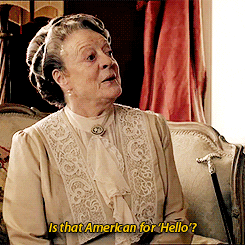As an Austrian studying in the UK, English is not my native language. Before coming to England, I felt pretty confident in my English abilities; my grades were always very good, I was able to understand films and song lyrics and I was reading English books without any issues. Then I came to Essex.
Britain is known for its linguistic diversity. If you think you know all the different British accents, take a 20-minute drive to the next town and you’ll hear an entirely new selection of sounds that might resemble the English language you know, but leave you doubting your language skills. While the Essex accent is not the most ‘exotic’ one, it can be challenging when all you are used to are posh Cockney speakers who are usually used for listening exercises in school. After almost two years in Colchester, I have gained a wide range of new words that are extremely useful in my daily whereabouts in England. To make other international students’ transition into speaking full Essex easier, I decided to share my wisdom with you.
In the University of Essex area, you are usually greeted with a nonchalant ‘you alright?’ (pronounced [you’o’ride]) which supposedly has its roots in the phrase ‘Are you alright?’ and is expected to be met with a concise ‘yea’ (‘yea, u?’ if you want to be extra polite). Initially, I mistook this expression as a genuine interest in my well-being, making me wonder whether I appeared ill to everyone around me, as they seemed concerned about me. Once someone explained to me that this is simply a standard greeting (similar to the US-American ‘how are you’, which anticipates a similar level of honesty when responding), I was relieved to know that people didn’t constantly worry about me.
Similarly, Essex natives like to say ‘see you later’ when saying goodbye. This certainly doesn’t imply that the two involved people will indeed see each other at a later point in the day. At the beginning, I thought that everyone was expecting to meet me again (which I actually found quite nice). It got particularly confusing when a person I would certainly not see again ever in my life said this to me, which left me wondering about maybe having misunderstood the intention behind this phrase. Sure enough, ‘see you later’ doesn’t necessarily guarantee a reunion in the near future.
Even if a re-union did take place at a later point, there has been confusion about telling the time as well. You see, in my native language, when we say ‘half-something’ it means half an hour before the full hour (e.g. half-4 means 3.30). Here, the opposite is the case (half-4 = 4.30). Although this is only a minor difference, it can cause disorientation. It took me a while to realise that the meaning is different, and at this point I had been early to a LOT of meetings.
As far as Britishness goes, tea is probably the pinnacle of what one can imagine in this category. Moving to England, I was prepared to deal with the British obsession with drinking tea (which is not an exaggeration, believe me). When I was asked by my English friend what I was having for tea and I obliviously responded, ‘some kind of herbal, preferably mint’, I learned that ‘tea’ also means ‘dinner’. ‘Having tea’ therefore can mean either drinking the typically British cuppa, or sitting down at the dinner table and having an actual meal.

One phrase that I have no direct translation to is ‘innit’. I wildly assume that it comes from ‘isn’t it’, as it is sort of used in the same way, but this is just a guess. For example, one might overhear a conversation where an Essex lad states ‘we could go to Nando’s, innit’. There is no specific purpose to it, but it practically serves as a verbal full stop to a sentence. It’s also kind of fun to use, innit.
These are only a handful of the different words and phrases that you will hear very frequently when living in Colchester. While sometimes being slightly confusing, they all contribute to the charm and atmosphere of being in the UK. So picking up new vocabulary is always pleasant and can be amusing, so pay attention to what new expressions you hear while in Essex!
